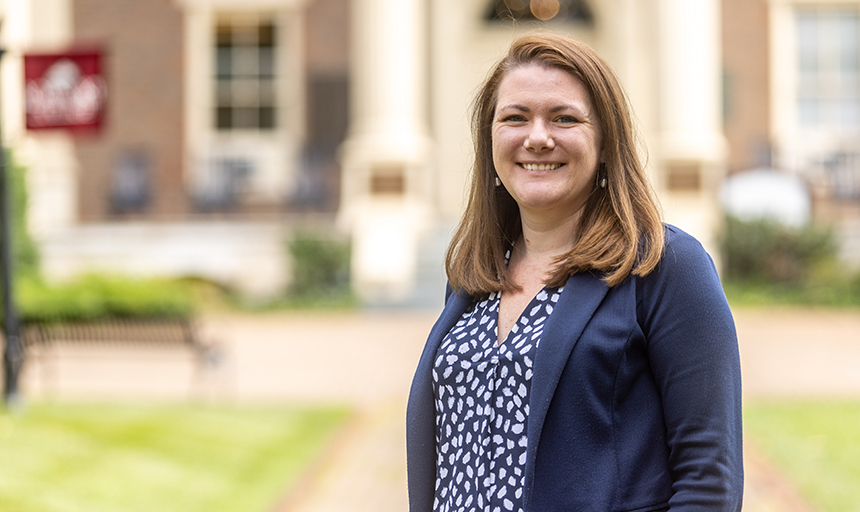Saoub appointed to fellowship with president’s advisory council
June 02, 2023

Mathematics Professor Karin Saoub has been tapped to serve as a policy fellow with the U.S. President's Council of Advisors for Science and Technology.
The appointment positions Saoub to work with some of the nation’s brightest minds to advise the White House on key matters that require a deep understanding of science, technology and innovation. In her new role, Saoub, who is on sabbatical from Roanoke College, will be one of six staff members furthering the council’s work.
Saoub, who is Roanoke’s M. Paul Capp & Constance Whitehead Professor of Mathematics, was picked to work more closely with the administration after serving as an advisor to the director of the Department of Energy’s Office of Science as a Science and Technology Policy Fellow of the American Association for the Advancement of Science. She was one of seven mathematicians to join that prestigious program last fall.
RELATED: Saoub selected for AAAS Policy Fellowship
That experience gave her greater insight into the federal policymaking process. Her work included building bridges between science and policy by preparing briefings for decision makers, distilling information in an accessible way for lay audiences and aiding in interagency coordination.
In her work with the President's Council of Advisors for Science and Technology (PCAST), Saoub will support members as they develop recommendations for the president on administration priorities, such as Generative AI, Cyber-Physical Resilience and the Future of Food.
Her appointment will be in effect until August 2023, when she will return to Roanoke College to serve as the next chairperson of the Department of Mathematics, Computer Science and Physics.
PCAST is the sole body of experts from outside of the federal government that is tasked with making science, technology and innovation policy recommendations to the president and the White House. Established by executive order, it is an independent advisory committee comprised of leading professionals with a range of expertise and perspectives across industry, academia and nonprofits.
The council works to develop evidence-based recommendations both on matters that directly involve science, technology and innovation policy and on matters where scientific and technological expertise can inform policies that impact the economy, worker empowerment, education, energy, the environment, public health, security, racial equity and other topics.
Below: Karin Saoub and her family pause for a picture inside the Eisenhower Executive Office Building, which is located next to the White House and is the main facility used by the Executive Office of the President.
